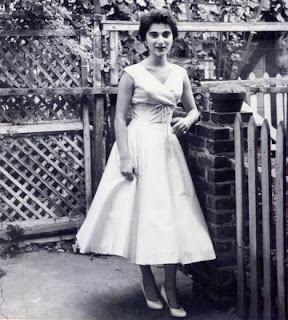Do you still remember the car accident that caused Chinese toddler died on the past October 2011 that actually there are several people passed by the body of that toddler but none of them try to help her?
Quoted from BBC News
A two-year-old girl in southern China, who was run over by two vans and ignored by 18 passers-by, has died, hospital officials say.
 |
| source of image: blog.lib.umn.edu |
We definitely will think that those passers-by who just left the girl died -- without step in to assist -- are very cruel. But, if we face the condition, we can never guarantee that we wouldn't do the same thing. Normally, we'll think that if we found people who need help, we absolutely will lend our hand and help them. But in the reality, sometimes, it really is different.
You know that someone is really need your help but you're hesitate to give them help. You see there is people who is going to die but you did nothing because you afraid to take an action to save him/her. You actually have to help people in danger but you then think that's not your responsibility, especially when there is another people there. It calls Bystander (ˈbaɪstændər) Effect.
This is the definition of bystander effect from Alleydog: Psychology Glossary
The Bystander Effect is a social phenomenon in which a person (or persons) are less likely to offer help to another person (or persons) when there are more people around who can also provide assistance. Many people believe that, when there is an emergency and lots of people are present, the people in need are more likely to get assistance. However, this is not the case. Rather, the more people there are who can help, the less likely each person is to offer help. Thus, when in a group, people are less likely to offer help than when they are alone.
One of the other notorious cases of the bystander effect is in 1964, a young Queens woman named Catherine Genovese who was stabbed to death, raped, and robbed by Winston Moseley outside her own apartment building. In fact, there were 38 people witnessed the incident, heard Kitty's screaming, but just watched the tragedy, none of them tried to help or call the police.
 |
| Catherine Genovese or Kitty Genovese source of image: blog.lib.umn.edu |
Actually, what are the factors that contribute to bystander effect?
Kendra Cherry in About.com states that
There are two major factors that contribute to the bystander effect. First, the presence of other people creates a diffusion of responsibility. Because there are other observers, individuals do not feel as much pressure to take action, since the responsibility to take action is thought to be shared among all of those present.The second reason is the need to behave in correct and socially acceptable ways. When other observers fail to react, individuals often take this as a signal that a response is not needed or not appropriate. Other researchers have found that onlookers are less likely to intervene if the situation is ambiguous.
These all are psychological terms. Though I'm an engineering student not a psychology or social science student, doesn't mean I never care with the social things. Instead, the reason I made this writing is because I do really care.
Unconsciously, we also often became a bystander. For example, in the crowded place, when we see there is a stranger -- not too far from us -- whose books fell down, we have a tendency to just see that moment, we want to offer help, but then think again that guy/girl will get any help from others or at least he/she can handle it by themselves. So, we just remain watching it.
So, stop becoming a bystander. What you can do to break it are:
- Just act, if you know what to do, you should take the first step. You should never think that other people can do better than you.
- Keep in your mind that you always have your own individual choice as you have individual responsibility for your own actions. Never deny your common sense.
- If you feel confuse about what should you do, or you are not able to do it by yourself, you can ask other people directly and tell them that they also have responsibility to help.
- Be more specific in calling people for help, for example by calling the name or his/her characteristics.
- Always bear in mind, wonder, and realize what if you who is standing in the insecure and dangerous position. You'll really need other people to help.
 |
| source of image: Toyota Website |
I hope, this information can contribute well to decrease bystander effect and create a better society. It's time for us to not just become a good people who stand by and let bad things happen, but a good people who responsive, reactive, and make the bad things didn't happen.
No comments:
Post a Comment